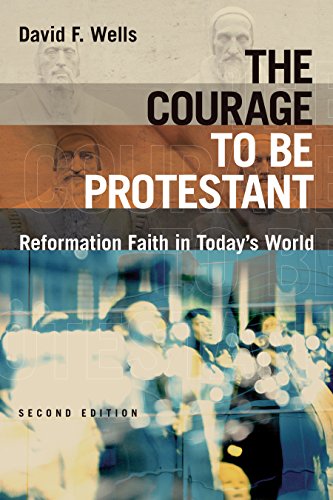
Quotes by David Wells
We are called to see that the Church does not adapt its thinking to the horizons that modernity prescribes for it but rather that it brings to those horizons the powerful antidote of God’s truth.
The fundamental problem in the evangelical world today is that God rests too inconsequentially upon the church. His truth is too distant, His grace is too ordinary, His judgment is too benign, His gospel is too easy, and His Christ is too common.
We have turned to a God that we can use rather than a God we must obey; we have turned to a God who will fulfill our needs rather than to a God before whom we must surrender our rights to ourselves. He is a God for us and for our satisfaction, and we have come to assume that it must be so in the church as well. And so we transform the God of mercy into a God who is at our mercy. We imagine that He is benign, that He will acquiesce as we toy with His reality and co-opt Him in the promotion of our ventures and careers.
Christian hope rests upon the fact not that evil can be ignored, or that it will simply fade away, but that it has been judged at the cross.
Forward in Hell on Trial: The Case for Eternal Punishment by Robert Peterson, P&R Publishers, 1995, p. x, Used by Permission. Get this book!
A God with whom we are on…easy terms and whose reality is little different from our own…who is merely there to satisfy our needs – has no real authority to compel and will soon begin to bore us.
God in the Wasteland: The Reality of Truth in a World of Fading Dreams, Eerdmans, 1994, p. 93. Get this book!
Truth is now simply a matter of etiquette: it has no authority, no sense of rightness, because it is no longer anchored in anything absolute. If it persuades, it does so only because our experience has given it its persuasive power, but tomorrow our experience might be different.
The new evangelicalism is not driven by the same passion for truth as the older form, and that is why it is often empty of theological interest. We now have less biblical fidelity, less interest in the truth, less seriousness, less depth and less capacity to speak the Word of God to our own generation in a way that offers an alternative to what it already thinks.
Many of those whose task it is to broker the truth of God to the people of God in the churches have now redefined the pastoral task such that theology has become an embarrassing encumbrance or a matter of which they have little knowledge; and many in the Church have now turned in upon themselves and substituted for the knowledge of God a search for the knowledge of self.
A God who is without wrath is a God whose Christ has no cross, and if He has no cross, it can only be because we are those to have no need of His cross.
Forward in Hell on Trial: The Case for Eternal Punishment by Robert Peterson, P&R Publishers, 1995, p. x, Used by Permission. Get this book!
The fundamental problem in the evangelical world today is not inadequate technique, insufficient organization, or antiquated music and those who want to squander the church’s resources bandaging these scratches will do nothing to staunch the flow of blood that is spilling from its wounds. The fundamental problem in the evangelical world today is that God rests too inconsequentially upon the church. His truth is too distant, His grace too ordinary, His judgment too benign, His gospel too easy, and His Christ is too common.
God in the Wasteland, Eerdmans, www.eerdmans.com, 1994, p. 30. Get this book!


